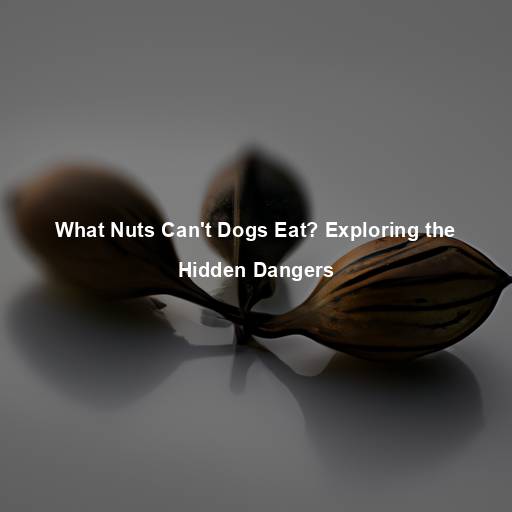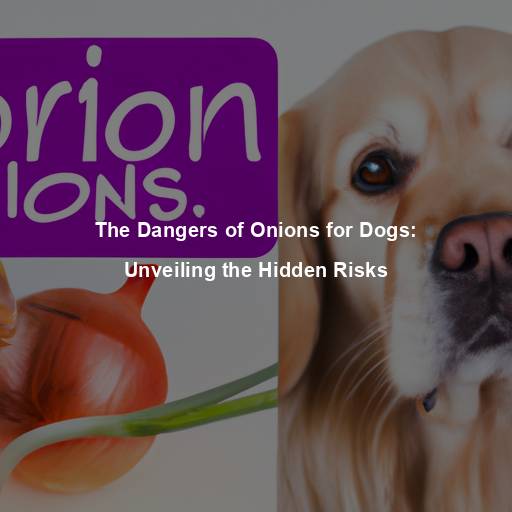Can Dogs Get COVID-19? Unveiling the Truth Behind Canine Susceptibility
Last Updated on August 5, 2023 by Evan
Contents [hide]
- 1 Understanding the Transmission of COVID-19
- 2 Unraveling the Canine Susceptibility
- 3 The Importance of Pet Safety
- 4 Addressing Common Concerns
- 5 Guidelines for Responsible Pet Ownership
- 6 The Power of the Human-Canine Bond
- 7 Embracing the Canine Spirit
- 8 FAQs – Can Dogs Get COVID?
- 8.1 How can dogs catch COVID-19?
- 8.2 Can dogs transmit COVID-19 to humans?
- 8.3 What are the symptoms of COVID-19 in dogs?
- 8.4 How can I protect my dog from COVID-19?
- 8.5 Should I get my dog tested for COVID-19?
- 8.6 Can dogs be vaccinated against COVID-19?
- 8.7 Is it safe to adopt a dog during the COVID-19 pandemic?
Understanding the Transmission of COVID-19
The global pandemic triggered by the notorious COVID-19 virus has churned a whirlwind of confusion and unease. In this time of bewilderment, we can’t help but ponder the fate of our loyal furry friends, our ever-faithful dogs. Are they impervious to this invisible menace or do they too face the wrath of this relentless adversary? This article endeavors to untangle the enigma and decipher whether our beloved canines are susceptible to contracting COVID-19, thus unraveling the potential implications on their precious lives.
The Origins of COVID-19
As we delve into the intriguing question of whether our furry companions can contract COVID-19, it is crucial to take a moment and revisit the enigmatic origins of this worldwide health dilemma. Scientists have posited that the virus sprang forth from the animal kingdom, with bats playing a prominent role as the original carriers. Yet, the perplexing puzzle lies in the potential involvement of an intermediary creature, like the elusive pangolin, in transmitting the virus to humans, thus igniting the global outbreak. While the virus predominantly targets human hosts, unraveling its transmission dynamics becomes ever more paramount in our quest for understanding.
Human-to-Human Transmission
In these unprecedented times, it has become abundantly clear that COVID-19 spreads like wildfire, mainly through the unassuming air we breathe. A simple cough, a mere sneeze, or a casual chit-chat can unleash a storm of invisible droplets carrying the virus. It’s no wonder then that keeping a safe distance from our fellow humans, donning masks like modern-day superheroes, and sanitizing our hands with monotonous regularity have become the norm. Through these perplexing times, we must remain vigilant and steadfast in our efforts to prevent the spread of this enigmatic foe.
Can Dogs Contract COVID-19?
In the realm of viral intrigue, the canine companions hold a curious position. As we navigate the labyrinth of coronaviruses, it becomes paramount to discern the subtle nuances. Groundbreaking studies and the hallowed halls of scientific knowledge reveal a compelling narrative: our loyal dogs, it seems, possess a fortitude that shields them from the clutches of the notorious SARS-CoV-2, the silent orchestrator of the perplexing COVID-19 saga.
Unraveling the Canine Susceptibility
Limited Cases of Canine Infection
While the thought of our furry friends contracting COVID-19 may raise eyebrows, it’s important to stay informed and not let anxiety take the leash. Although there have been a few reported cases of dogs testing positive for the virus, these instances should be seen as rare as finding a unicorn at a dog park. Both the esteemed World Health Organization (WHO) and the Centers for Disease Control and Prevention (CDC) have made it clear that transmission from dogs to humans is about as common as spotting a mermaid in your local swimming pool. So, let’s focus on what really keeps us tossing and turning at night – human-to-human transmission, and leave our loyal canine companions out of this perplexing pandemic puzzle.
Dogs as Potential Carriers
While dogs may contract the virus, studies suggest that they are unlikely to show severe symptoms or become seriously ill. Although dogs can carry the virus on their fur and skin, the risk of transmission from dogs to humans is considered minimal. The primary mode of transmission remains human-to-human contact.
Environmental Contamination
One aspect that requires attention is the potential for environmental contamination. If an infected person coughs or sneezes near a dog, the virus may land on the dog’s fur. However, the virus’s survival on surfaces, including pet fur, is still being studied. Therefore, practicing good hygiene measures, such as washing hands after contact with pets, is recommended to minimize any potential risk.
The Importance of Pet Safety
Maintaining Good Hygiene Practices
In times of unpredictability, we must channel our energy towards safeguarding the precious lives of not only ourselves but also our furry companions. Prioritizing the welfare of our pets becomes paramount, and one way we can show our love is through maintaining impeccable cleanliness. A thorough bathing and grooming routine for our canines can prove instrumental in minimizing the chances of lurking threats onto their adorable fur. Nevertheless, it is vital that we choose products tailored to their needs and seek guidance from a trusted veterinarian to embrace the ultimate practices for our unique furballs.
Veterinary Care and Monitoring
As pet lovers, we understand the importance of staying in the know and seeking professional care when our furry companions display any signs of illness. While COVID-19 occurrences in dogs are not the norm, it’s crucial to be aware of other health concerns that may warrant attention. Consistent veterinary check-ups and up-to-date vaccinations ensure that your beloved pet’s well-being is given the utmost attention, especially in the midst of these turbulent times.
Social Distancing for Dogs
Although dogs may not be highly susceptible to COVID-19, it is essential to practice social distancing measures when walking or visiting public spaces with your pet. Maintain a safe distance from other people and their pets to minimize the risk of potential exposure. By adhering to these precautions, we can play our part in preventing the further spread of the virus.
Addressing Common Concerns
Can I Contract COVID-19 from My Dog?
While the risk of contracting COVID-19 from your dog is considered low, it is still crucial to practice good hygiene. Wash your hands thoroughly after handling your pet or coming into contact with their fur, saliva, or waste. By following these simple steps, you can minimize any potential risk and prioritize the health and safety of both you and your furry companion.
Can My Dog Transmit COVID-19 to Other Animals?
As the world continues to grapple with the complexities of COVID-19, the transmission dynamics stand as a perplexing enigma. While human-to-human transmission remains the primary conduit for the virus, there have been perplexing instances of our furry companions, such as dogs, testing positive. Yet, amidst this burst of confusion, studies indicate a glimmer of hope, with limited evidence suggesting minimal interspecies transmission. Nevertheless, should your beloved furry friend happen to fall victim to this perplexing predicament, experts advise us to tread with caution and limit their interactions with other animals until a full recovery has been achieved.
The Role of Research and Ongoing Studies
To gain a deeper understanding of the impact of COVID-19 on animals, ongoing research and studies are being conducted worldwide. Scientists and veterinary experts are working diligently to uncover more information about the susceptibility and transmission dynamics of the virus in various animal species. By staying informed and up to date with the latest research findings, we can make informed decisions regarding the safety and well-being of our pets.
Dogs as Emotional Support
Amidst the uncertainties and challenges brought about by the COVID-19 pandemic, dogs have played a significant role in providing emotional support to their human counterparts. The unconditional love and companionship they offer can be a source of comfort during these trying times. Dogs have a remarkable ability to uplift our spirits, reduce feelings of stress and anxiety, and provide a sense of normalcy in our daily lives.
Canine-Assisted Therapy
Beyond their role as beloved pets, dogs have also been employed in various therapeutic settings, such as hospitals, nursing homes, and schools. Canine-assisted therapy has proven to be beneficial in improving emotional well-being, reducing blood pressure, and enhancing social interactions. The presence of dogs can create a calming and soothing atmosphere, offering a welcome distraction from the challenges we face.
The Impact of Isolation on Dogs
In a world where dogs touch our hearts and bring us joy, it’s crucial to acknowledge the perplexing effect of solitude on their overall well-being. Being social creatures who thrive on human companionship and intellectual stimulation, our furry friends find themselves in a burst of uncertainty. Long periods of isolation coupled with the changes in routines caused by lockdowns and social distancing might leave our canine pals feeling perplexed and lonely. It is of utmost importance for dog owners to be aware of these challenges and take proactive measures to ensure their pets receive the mental and physical stimulation they need to thrive.
Guidelines for Responsible Pet Ownership
Mental Stimulation and Enrichment
In order to truly prioritize the holistic welfare of our beloved four-legged companions, it is of utmost importance to delve into the realm of mental engagement and enrichment. By weaving a tapestry of interactive play sessions, thought-provoking puzzle toys, and the incorporation of obedience training, we can unlock the key to keeping our canine friends intellectually on their toes and prevent the dire clutches of ennui from taking hold. This carefully curated cocktail of mental stimulation not only serves as a shield against the emergence of wayward behavioral tendencies but also acts as a catalyst, fostering a deeper and more profound connection between dogs and their ever-devoted owners.
Regular Exercise and Physical Activity
Regular exercise is essential for maintaining a dog’s physical health and preventing obesity. It is important to adapt exercise routines to suit your dog’s breed, age, and health condition. Whether it’s going for a walk, playing fetch in the backyard, or participating in agility training, regular physical activity helps dogs release pent-up energy, promotes cardiovascular health, and supports overall well-being.
A Nutritious and Balanced Diet
Providing a nutritious and balanced diet is fundamental to a dog’s health and vitality. Consult with a veterinarian to determine the appropriate diet for your dog’s specific nutritional needs. A well-balanced diet supports proper growth and development, strengthens the immune system, and maintains optimal weight. Remember, treats should be given in moderation to avoid excessive calorie intake.
Regular Veterinary Check-ups and Vaccinations
Keeping your furry friend in tip-top shape involves staying on top of regular vet visits to keep an eye on their wellbeing and catch any sneaky health issues that may be hiding. Vaccines are like superheroes, swooping in to protect against nasty infections and keep your pet safe and sound. Trust your vet’s wisdom when it comes to staying on schedule and don’t hesitate to raise any worries or curiosities swirling around in your mind during these check-ups.
Mental and Emotional Well-being
Just like humans, dogs can experience mental and emotional challenges. Separation anxiety, fear, and phobias are common issues that may arise. It is important to provide a safe and nurturing environment for your dog, offer positive reinforcement, and seek professional help if necessary. Remember, a happy and emotionally balanced dog is more likely to thrive and bring joy to your life.
The Power of the Human-Canine Bond
Unconditional Love and Companionship
The bond between humans and dogs is a testament to the incredible connection that can be formed across species. Dogs have an innate ability to sense our emotions and provide unwavering support. Their loyalty, affection, and companionship are unparalleled, making them cherished members of our families. As we navigate through these challenging times, the love and joy they bring can be a source of solace and strength.
A Lesson in Resilience
The unwavering strength and unwarranted determination of dogs in the midst of challenges never fails to astound and move us. Their relentless spirit teaches us profound lessons about embracing the unpredictable nature of life, cherishing the fleeting moments of happiness, and approaching each day with boundless enthusiasm. Dogs serve as constant reminders to live in the moment, bask in the beauty of simplicity, and seek solace in the comforting embrace of our loved ones.
Embracing the Canine Spirit
In these unprecedented times, when every day seems to bring a new wave of confusion and apprehension, there is one constant that keeps us grounded and hopeful: our beloved dogs. As we grapple with the challenges posed by the ongoing COVID-19 pandemic, it is both our responsibility and privilege as pet owners to prioritize the well-being of our furry friends. Their unwavering loyalty and affection serve as a guiding light, reminding us to embrace the present and find solace in their comforting presence. Let us cherish the unique bond we share with our canine companions, for it is through their love and companionship that we find strength and navigate the turbulence of this perplexing world, together.
FAQs – Can Dogs Get COVID?
It’s been a topic of concern for many pet owners lately – can our furry companions contract COVID-19? Well, the good news is that while there have been cases reported, it’s actually quite uncommon for dogs to get infected. In fact, they have shown to be less vulnerable to this particular strain of coronavirus compared to us humans. So, fret not, as the chances of your dog catching COVID-19 are generally very low.
How can dogs catch COVID-19?
Dogs can catch COVID-19 mainly through close contact with an infected person or another infected animal. This can occur if a positive individual coughs or sneezes on the dog, or if the dog comes into contact with contaminated surfaces. It is essential to practice good hygiene and limit contact between your dog and potentially infected individuals or animals to minimize the risk of transmission.
Can dogs transmit COVID-19 to humans?
While it’s true that dogs can harbor the virus on their fur or skin, the chances of humans contracting COVID-19 from them are inconclusive and exceedingly low. The prevailing research indicates that our canine companions are not major culprits in the transmission of the virus. Nevertheless, it’s prudent to exercise caution by practicing good hygiene, including thorough handwashing after any contact with pets or their living spaces, to uphold a sense of overall well-being.
What are the symptoms of COVID-19 in dogs?
The symptoms of COVID-19 in dogs are similar to those in humans and can include mild respiratory distress, coughing, sneezing, lethargy, and fever. However, it is important to remember that these symptoms are not unique to COVID-19 and can also be caused by various other conditions. If you suspect your dog may be ill, it is best to seek veterinary advice for an accurate diagnosis.
How can I protect my dog from COVID-19?
During these uncertain times, it’s crucial to prioritize the health and safety of our beloved furry friends. Take a proactive approach by minimizing your dog’s interactions with individuals or animals not belonging to your household. Keep a keen eye on any potential symptoms or COVID-19 diagnosis in your pet or others around them. Additionally, adopting stringent hygiene practices, like thorough handwashing before and after any contact with your furry companion, regular cleaning of their belongings, and steering clear of crowded areas, can effectively mitigate the risk of exposure. Stay vigilant to ensure your dog’s well-being in the midst of this perplexing situation.
Should I get my dog tested for COVID-19?
In the realm of COVID-19, testing our beloved canines can be quite the perplexing puzzle. While routine screening for the virus may not be deemed essential, it is imperative to remain vigilant, especially when our furry companions exhibit telltale signs or have had close encounters with confirmed positive cases. In such enigmatic circumstances, seeking the wise counsel of a knowledgeable veterinarian becomes paramount, as they can unravel the tangled web of testing options and steer us towards the most fitting course of action.
Can dogs be vaccinated against COVID-19?
As the world grapples with the ongoing COVID-19 pandemic, it’s important to address the burning question on every dog owner’s mind: Can dogs be vaccinated against this relentless virus? Sadly, the answer is not as straightforward as we might hope. While vaccines are undoubtedly a vital tool in combating the spread of diseases, it’s crucial to bear in mind that the current vaccines available have been meticulously developed and tested for human use, leaving our beloved furry companions out of the equation for now. So, in this whirlwind of uncertainty, it’s best to turn to the experts – your trusted veterinarian – for guidance and stay informed about any future developments that may hold the key to protecting our four-legged friends.
Is it safe to adopt a dog during the COVID-19 pandemic?
Amid the swirling abyss of uncertainty that the COVID-19 pandemic has bestowed upon us, your longing for companionship might have taken the shape of a furry friend. But fear not, dear reader, for adopting a dog in these perplexing times can indeed be an option worth considering. However, as the waves of ambiguity crash upon our shores, it becomes imperative to navigate the foggy landscape with caution and utmost care. Trust in the wisdom of local health authorities and the guidance of rescue organizations, for they hold the key to a safe passage towards that precious bond you seek. Reach out to the shelters and the noble souls who work tirelessly to find these majestic creatures their forever homes, and unravel the enigmatic tapestry of their mandated protocols and safety measures. And, dear reader, as you embark on this journey, do not forget the teachings of hygiene and the dance of social distancing, even in the graceful presence of your newfound companion.





